Transcription
#99
The Ingredients to Our Personalities
by Nate A. Lindell, created 30 Oct 2012
http//betweenthebars.org/blogs/540/nathaniel-lindell/
Personality is a phenomenon people are in the habit of taking for granted as being one phenomenon rather than the containment in one body of many interacting phenomena, not seeing the trees for the forest. It's much like how we perceive the macro image produced by the micro dots of pigment produced by a dot-matrix printer, rather than perceiving all those tiny dots. An individual's personality is an illusion of unity and constancy, made more effective by being exhibited by one person (or animal...) which comes in handy for creating the still bigger (and very useful...) illusion of one society, which feeds back into the common misconception about personality being unified and constant; just about every society, certainly industrial society, teaches that the illusion is real - any religion that preaches about an eternal soul is, maybe unintentionally, giving a powerful reason to believe in the unity and constancy of personality - and keeps people too busy with other matters than pondering about the nature of personality.
It's true that, over time, the components of an individual's personality can - depending much on the individual's ingenuity/creativity, self-knowledge and self-control - operate in characteristic ways or become habitual (e.g. Joe smokes a cigarette each morning. Akbar prays four times a day). But the illusive belief about the nature of personality, which is incorporated into a person, if it remains in force, is a major factor in a person adhering to the illusion, living it out.
Beliefs are one of the major factors that define an individual's personality (and they can change, changing the personality), but there are others. These factors can be divided into two categories: those that were caused by Nature, and those that were brought about by Nurture. These factors interact with and shape each other constantly, which, again, makes it harder to see these trees as trees rather than a whole forest.
1. Natural Components of Personality
- Drives. Physiological drives (e.g. to breathe, to eat, to drink, to mate, to learn about one's surroundings to create shelter), shaped more or less by other natural and nurtured components, color the painting of a person's personality. The strength of these drives are not uniform in all humans. We all know of people with unusually strong drives to eat, to mate, to learn, ect. oftentimes a belief, a physical characteristic, or any number of other factors shape, even disguise how an individual deals with their natural drives. e.g. a woman with a strong sex drive in a Puritanical society might act cruel to those around her due to the frustration of that drive; a hungry person may act grumpy too. The strengths and weaknesses of whatever drives drive a person, largely determined by a person's genetic programming (I believe - epigenics can drag these programs somewhat into the realm of nurtured factors) are a major ingredient in the personality an individual manifests.
- Metabolism. A faster metabolism may create a more active individual; more activity may release or create higher levels of serotonin, which tends to create a more perky, confident personality. Or a too-fast metabolism can lead to health problems, which may cause depression to set in, may shape a personality into thinking superficially, or that thinks deep and fast. How an individual's mind reacts to a physiological characteristic of its body will be shaped bythe "software", the "programming", the beliefs it incorporates into itself during its life.
- Neuroanatomy/physiology + Intellectual Limits. Not every brain is born the same; some lobes or regions in lobes (e.g. the Broca's region) may be more or less effective at performing their functions than the same lobes or regions in lobes in another brain. According to the psychiatrist at my prison (Dr Knupple), the Broca's region is usually located in the left temporal lobe (as I recall), but in some brains, it might be in the right hemisphere. A genetically caused sub-par Broca's region, for one example, will affect the nature of an individual's overall personality, limiting their loquacity - maybe they'll develop into a good listener versus an insult comedian.
Imagine someone born with a defective pre-frontal cortex, the part of the brain that is responsible for controlling an individual's impulses, concentration + mature judgements. Such a defect will change the flavour of that person's personality.
Someone with abnormalities in their neuronal stem cells, which results in the demise at a young age of the neurons needed to produce dopamine (the cause of Parkinson's Disease), or which overexcites those neurons into releasing excessive dopamine (apparently one of the causes of schizophrenia) will exhibit a personality different than what it might have been otherwise. Other factors, such as beliefs about their disease, will further alter the individual's personality, possibly resulting in chronic depression, lowering serotonin levels, which can cause physical damage/changes in a brain, further defining the personality of the individual.
The mind is created by one's brain and its body, at least I contend so. Intellectual ability is determined by physical structures in a brain (e.g. amount of neurons, connections between neurons, the ease with which new connections can be made - a brain's "plasticity") and the beliefs about one's capabilities, as well as the methodology a mind has adopted for learning, solving problems, etc. The intellectual ability of a mind will also help determine the characteristics of an individual's personality, again, further shaped by the individual's beliefs/values. A really intelligent person with a pessimistic view of society might become a terrorist, or an effective activist for positive change. According to Aldous Huxley in Brave New World, a highly intelligent person is prone to being dissatisfied with the status quo of their society, which is true for me. Intellectual abilities too help define an individual's personality.
* Immune system's efficacy. Yeah! If one's chronically ill or afflicted with lupus, THAT'S going to affect their personality. There's a guy in this joint with lupus, also known as the Werewolf Disease, and he has the personality of a Tasmanian devil! (Nicki, tell 'em what I mean).
A chronically ill person may develop depression (depending again on their always important beliefs/values about the situation), which is known to weaken the immune system. A strong drive to survive might cause their beliefs/values to react to chronic sickness by delusively optimistic, or motivate them to fund or seek a cure for their malady (e.g. Christopher Reeve's support of stem-cell research to treat spinal injuries, Michael J. Fox...)
* Peripheral nervous system. Say someone's hypersensitive to pain, or pleasure, or (rare but real) can feel NO pain. These extremes + the levels between will also help define an individual's personality.
* Physical characteristics. Whether one's an ectomorph, an endomorph, or a mesomorph, pale or dark skinned, red-haired or bald, male or female, crippled or athletic, these extremes and the levels between, along with many other physical characteristics, in conjunction with and affected by other factors, will play a large part in the personality an individual manifests.
An extreme + possibly worn-out example: a black person in Mississippi back in the slave days; he's gonna be very humble and courteous to white people. Other less controversial examples, I guess: a beautiful woman in a patriarchal society; a skinny, scary guy in a warrior society; a fat man in a tight shirt (sorry, the Devil made me do that :) ).
It almost seems that some people's physical characteristics FORCED their personality + even careers in specific directions. Ron Jeremy's a porn star, while Bill Gates became a computer manufacturing and marketing maestro.
If you think of other natural components of personality that I've overlooked, go ahead + point them out in a comment.
II. Natural Components of Personality
* Beliefs/Values. God is real (and one or more) or not; TRUE love is attainable or not; the world's flat or round; we should serve our country or it should serve us; women or men should be trusted or not; having money matters most or not... etc... etc. These and countless other beliefs/values that an individual incorporates into their mind, mostly during their earliest years of development, impact how the individual parlays or downplays every other natural and nurtured factor.
If Ron Jeremy were an Orthodox Jew, he would not also be a porn star. If Bill Gates were a Green Anarchist, HE might have been the Unabomber and not Prof. Theodore Kaczynski. If Christopher Reeve and Michel J. Fox were Christian extremists, against abortion, they'd have a hard time also being advocates of fetal stem-cell research.
As Albert Ellis has well pointed out, we are capable of considering and modifying our beliefs/values, which will alter our behavior, our PERSONALITY, if we keep at it.
Our beliefs/values lead up to the creation or toleration of many other SUB factors, some of which can be more or less outside of the individual's control, such as
* Attitude
* Associations - Family, friends, enemies, neighbors...
* Culture they reside in, + the one they embrace
* Society they're subject to - democratic, tribal...
* Circumstances of their life - rich or poor, minority or majority, natural environment lived in...
Whenever you've thought about someone's personality (say of someone you were attracted to), have you ever really analyzed the components of it or were you merely romanticizing over the overall effect? Probably romanticizing, same here. I doubt we can do both at once + the latter's more enjoyable!
This wasn't meant to be more than a blog, understandable by the above-average intelligence yet not necessarily highly-schooled readers I hope are in my audience. Of course, this could be expanded, be more formal, whatever. When some college or university offers me a free ride, then it may be revised.
One last parting thought: if someone we know suddenly had a polar change in one or even two sub-factors in their personality OR WE PERCEIVE SUCH (e.g. become an atheist instead of a Christian, suffer damage to their Broca's region + can't talk sensibly), most of their personality's components remaining, it's erroneous to think of them as "a totally different person". Adapt, improve, overcome - it's what excellent personalities do!
Sources for many of the ideas herein:
Consciousness Explained, Daniel C. Dennett
The Essential Jung, selected + introduced by Anthony Storr
Psychology in Action, (forget the author's name - a lady, "Kauffman", I think)
The Angry Heart, by Joseph Santoro
Brave New World, by Aldous Huxley
Hope ya dig this, Nicki + CourtneyG too!
And, critics, arise + attack, rebut, correct, etc. - but I fight back!
My best,
Nate
Other posts by this author
|
2025 jul 19
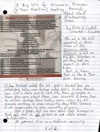
|
2025 apr 16

|
2025 mar 3
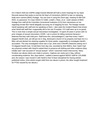
|
2024 sep 11
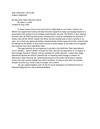
|
2024 aug 24
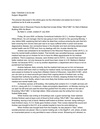
|
2024 aug 20
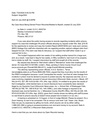
|
More... |

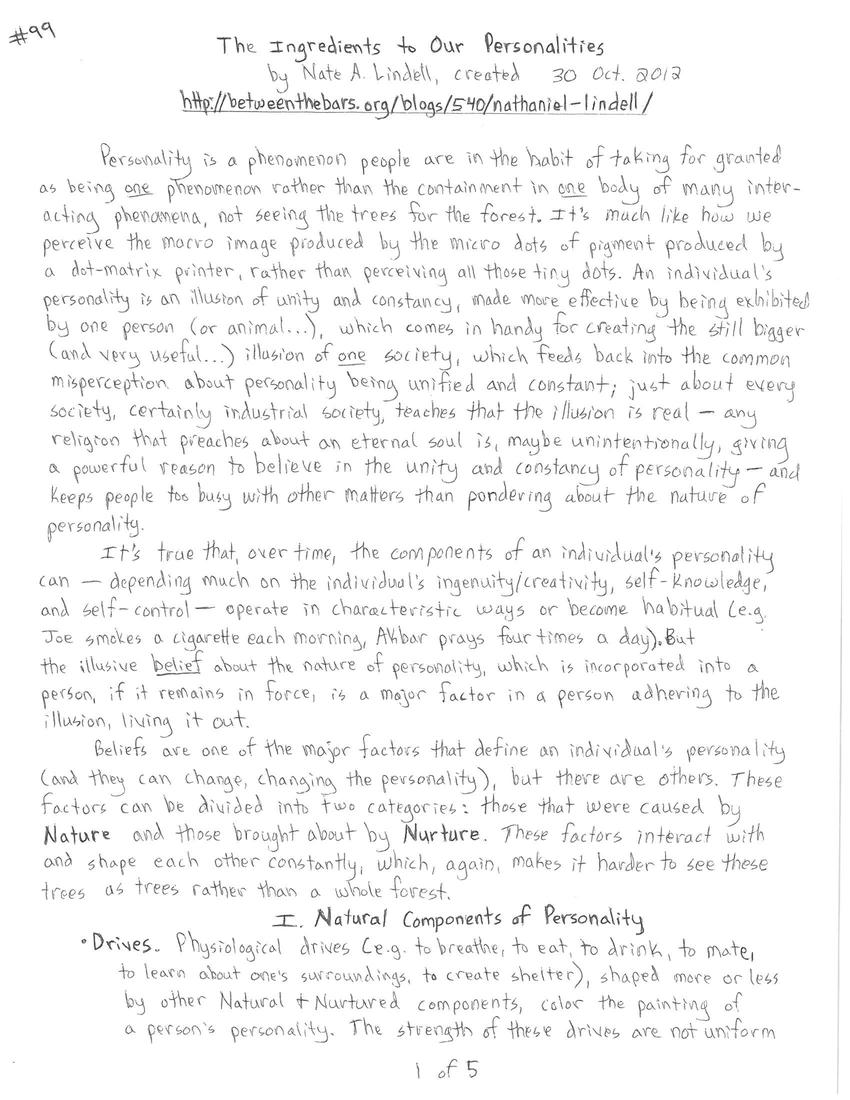
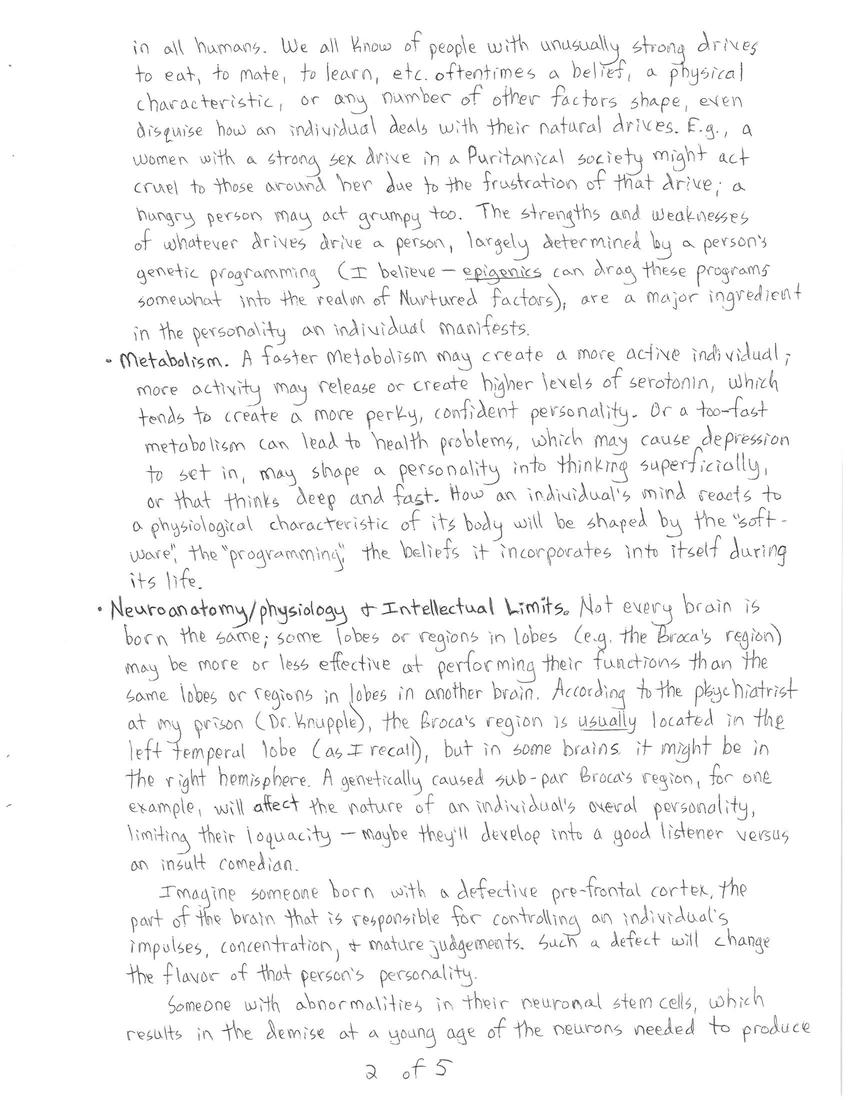
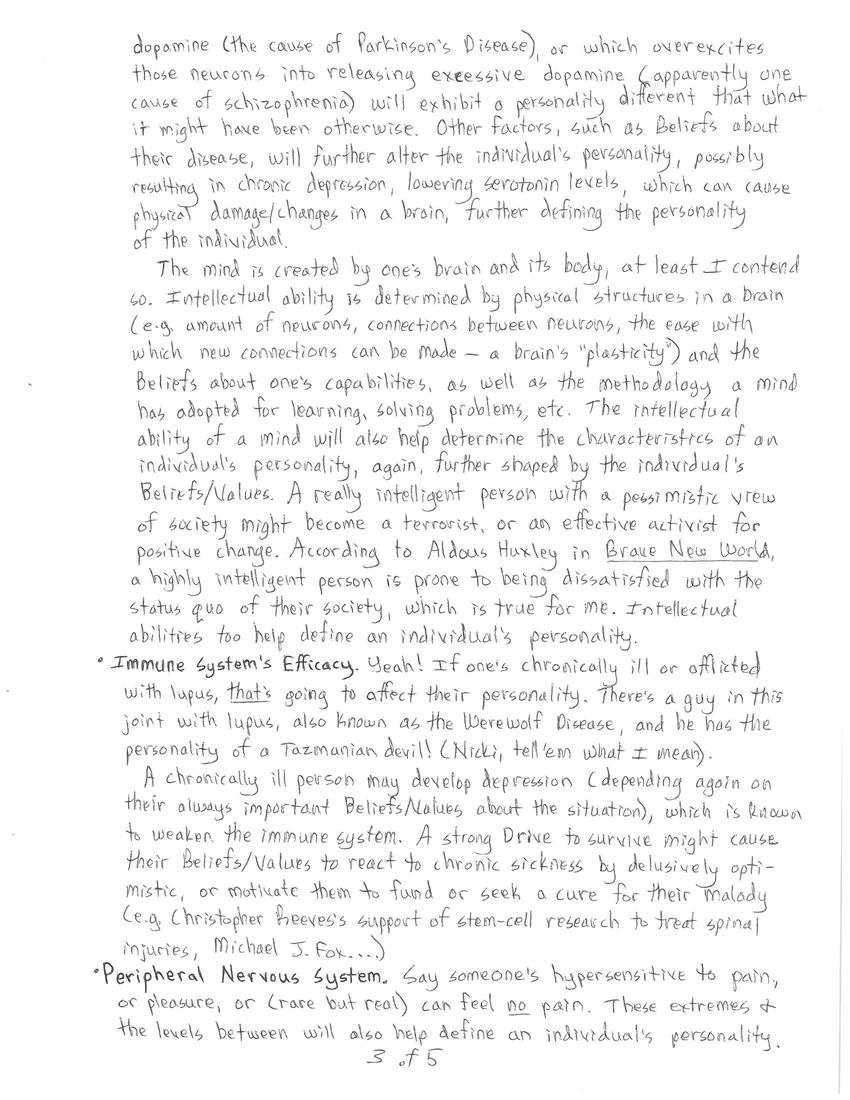
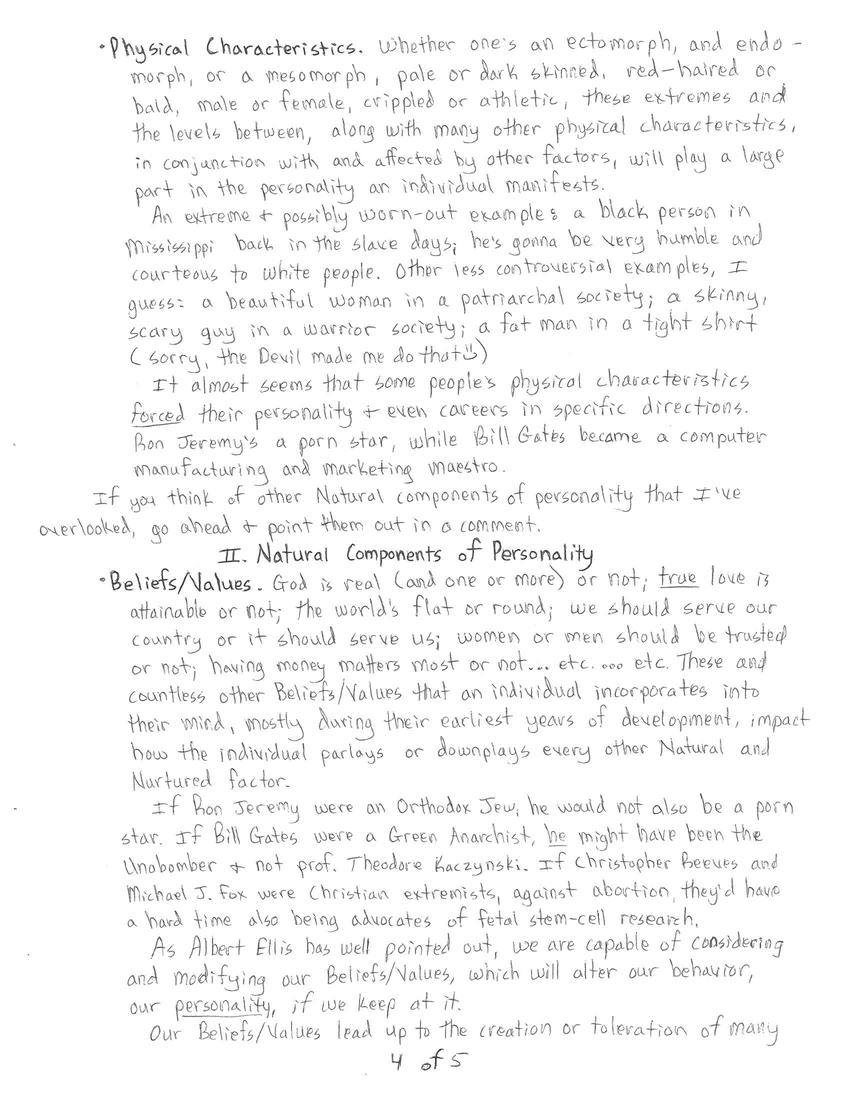
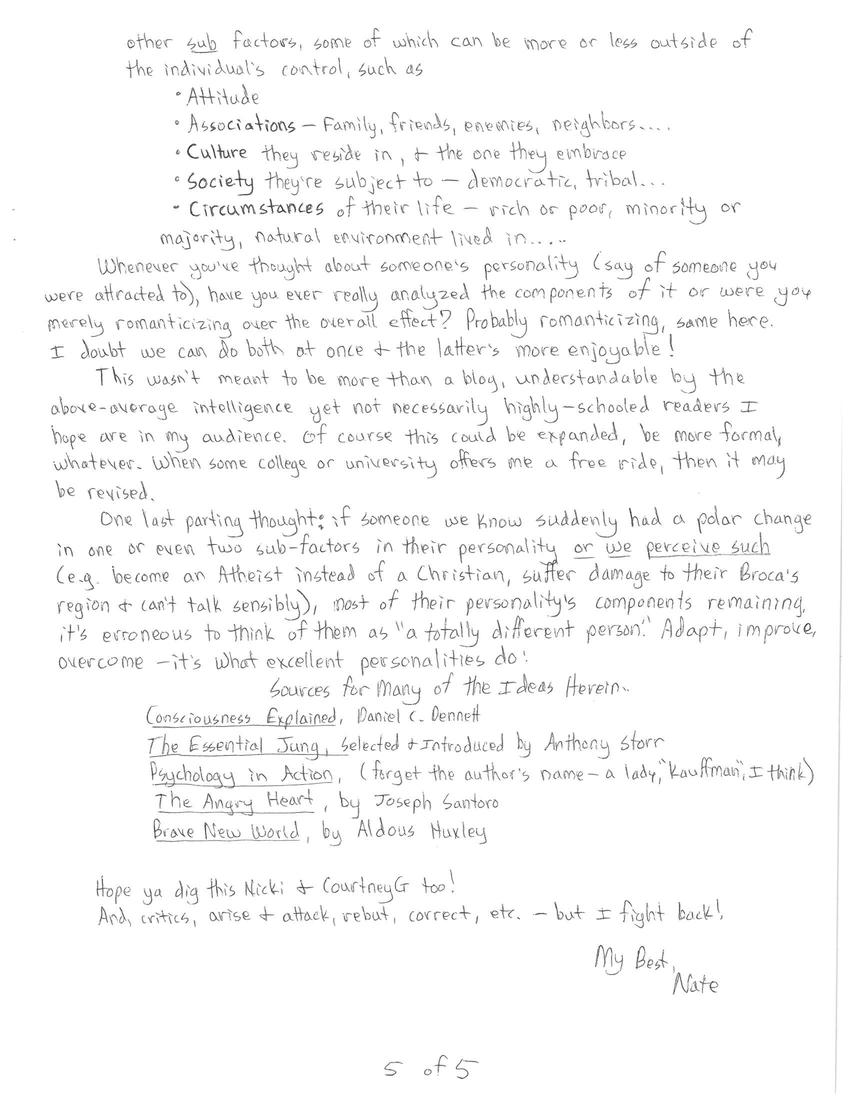

Replies